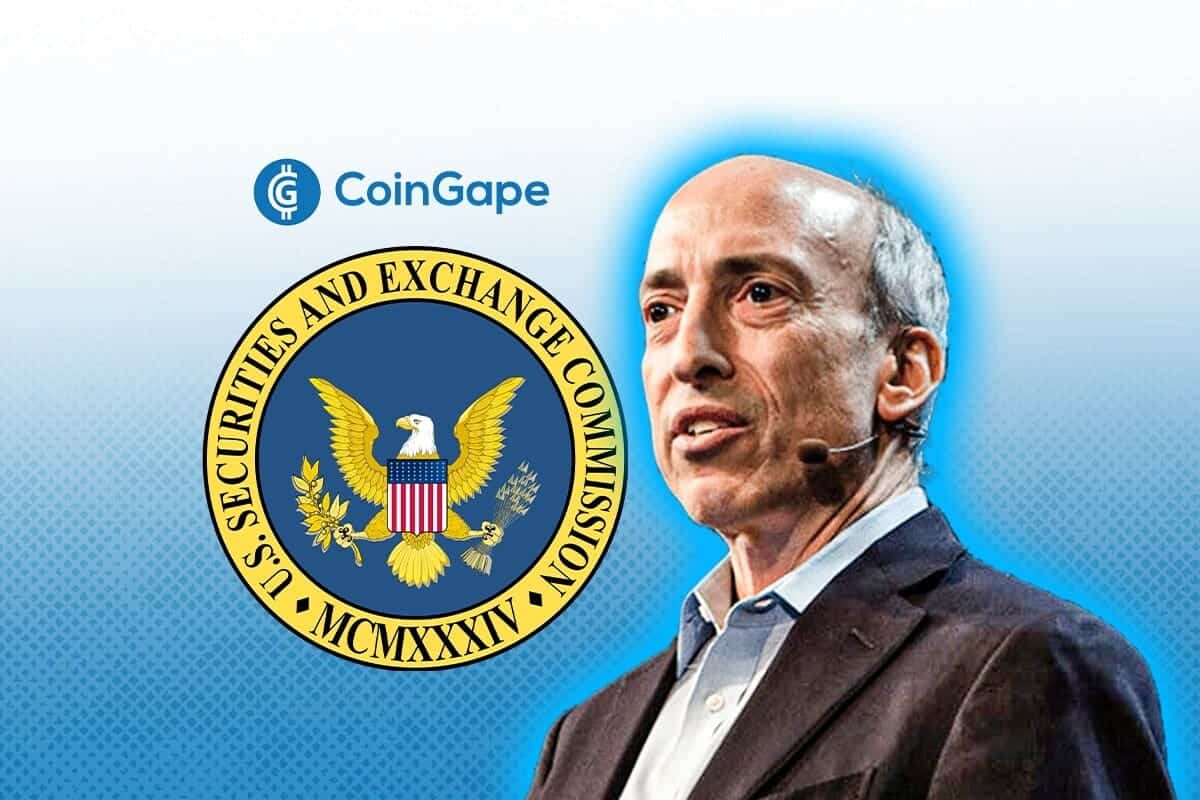Regulation
Ripple CTO David Schwartz Dismisses CharacterAI Lawsuit

Ripple CTO David Schwartz has dismissed the legal case against Character.AI, asserting that it lacks merit under U.S. law. Schwartz expressed his views on social media, emphasizing that while he does not defend Character.AI’s moral responsibility, the legal arguments made against the company are flawed.
Ripple CTO David Schwartz’s Argument on Free Speech
In a post on X (formerly Twitter), Ripple CTO David Schwartz highlighted that Character.AI’s actions fall under the protection of the First Amendment. He argued that the company’s chatbot platform produces expressive content, which remains protected unless it falls into one of the narrowly defined categories of unprotected speech, such as incitement or direct threats.
According to Schwartz, the lawsuit’s complaint revolves around the idea that Character.AI was reckless in how it designed its platform to generate speech.
He stated, “Any argument that the expressive contents of protected speech are reckless, dangerous, or ‘defective’ is wholly incompatible with freedom of speech.”
Schwartz compared the situation to previous moral panics over new forms of media, suggesting that the legal challenge against Character.AI mirrors past controversies involving video games, comic books, and other expressive content. He emphasized that regulating how speech is chosen would conflict with constitutional rights.
The Character.AI Lawsuit and Its Claims
The lawsuit, filed by the mother of a 14-year-old boy named Sewell Setzer III, accuses Character.AI of negligence, wrongful death, deceptive trade practices, and product liability. It alleges that the platform is “unreasonably dangerous” and lacked adequate safety measures, despite being marketed to minors.
The suit also references the company’s chatbots, which simulate characters from popular media, including TV shows like Game of Thrones. Setzer had reportedly interacted with these chatbots extensively before his death.
Character.AI’s founders, Noam Shazeer and Daniel De Freitas, along with Google, which acquired the company’s leadership team in August, are named in the lawsuit. The plaintiff’s lawyers claim that the platform’s anthropomorphization of AI characters and chatbots offering “psychotherapy without a license” contributed to Setzer’s death.
The company has responded with updates to its safety protocols, including new age-based content filters and enhanced detection of harmful user interactions.
Character.AI’s Response and Policy Changes
Character.AI has implemented several changes to improve user safety in response to the incident and subsequent lawsuit. These updates include modifications to content accessible by minors, a reminder pop-up that alerts users that the chatbots are not real people, and a notification system for users who spend prolonged time on the platform. The company’s communications head, Chelsea Harrison, stated,
“We are heartbroken by the tragic loss of one of our users and want to express our deepest condolences to the family.”
Harrison further explained that the platform now has improved detection systems for user inputs related to self-harm or suicidal ideation, which direct users to the National Suicide Prevention Lifeline. Despite these efforts, the legal battle continues, with Character.AI maintaining that it remains committed to user safety.
Meanwhile, the Aptos Foundation has announced a new partnership with Flock IO to develop AI tools using the Move programming language. Move, originally designed by Meta for the Diem project, is now being adapted for broader blockchain applications.
Disclaimer: The presented content may include the personal opinion of the author and is subject to market condition. Do your market research before investing in cryptocurrencies. The author or the publication does not hold any responsibility for your personal financial loss.
Regulation
UK to unveil crypto and stablecoin regulatory framework early next year


- The UK will introduce unified crypto regulations, including stablecoins, in early 2025.
- New rules aim to simplify oversight and avoid restrictive staking classifications.
- Labour government aims to compete with EU’s MiCA rules and US pro-crypto policies.
The United Kingdom is set to introduce a comprehensive regulatory framework for cryptocurrencies, stablecoins, and crypto staking services in early 2025, marking a pivotal shift in its approach to digital assets.
The announcement was made by the Economic Secretary to the Treasury Tulip Siddiq at City & Financial Global’s Tokenisation Summit in London on November 21.
Initially slated for December 2024, the regulatory rollout was delayed due to the change in government following the election of Prime Minister Keir Starmer’s Labour administration in July 2024.
The upcoming UK crypto regulatory framework
The upcoming framework consolidates regulations for crypto assets into a single, overarching regime, a decision Siddiq described as “simpler and more logical.”
The framework aims to provide clarity in a rapidly growing sector that has faced uncertainty in the UK.
Stablecoins will receive distinct treatment under these regulations, as their functionality does not align with existing payment services rules.
Siddiq highlighted that staking services would also avoid being designated as “collective investment schemes,” a classification that could impose burdensome restrictions.
UK aims to align with the global crypto regulatory landscape
The UK government’s renewed focus on digital asset regulation comes as it seeks to align with global developments. The European Union’s Markets in Crypto-Assets (MiCA) regulations will be fully enforced by the end of 2024, offering regulatory certainty that has positioned Europe as an attractive market for the crypto industry.
Meanwhile, the US, under President Donald Trump’s administration, has adopted a markedly pro-crypto stance, including the establishment of a White House “crypto czar” and SEC Chair Gary Gensler’s planned departure in January 2024.
The Labour government has shown its intent to catch up with international competition. In September 2024, it introduced a bill recognizing NFTs, cryptocurrencies, and carbon credits as property.
The new regulatory push reflects the UK’s ambition to regain credibility as a crypto hub while addressing criticisms of the Financial Conduct Authority’s perceived stringent oversight.
By delivering a robust, streamlined framework, the Labour government aims to bolster the UK’s standing in the multibillion-dollar crypto industry.
Regulation
Gary Gensler To Step Down As US SEC Chair In January

In a recent development, the US Securities and Exchange Commission (SEC) announced that Gary Gensler will step down from his position next year. This follows calls for Gensler to resign since Donald Trump won the US presidential elections.
Gary Gensler To Step Down As US SEC Chair
The US SEC announced in a press release that Gary Gensler will depart the Agency on January 20, 2025. The US SEC Chair also confirmed this development in an X post. Interestingly, this comes on the same day that Donald Trump will be inaugurated as the 47th president of the United States.
Following the announcement, Gensler also used the opportunity to reflect on his time at the Commission. He remarked that it has been an “honor of a lifetime” to serve alongside those at the SEC. He also thanked President Biden for the opportunity to serve in the position. Gensler has been the US SEC Chair since April 2021. During his time, he has spearheaded several litigations against the crypto industry.
This includes the long-running legal battle with Ripple, which Gensler took over from his predecessor Jay Clayton, which bordered on whether XRP was a security. Up till now, the Agency continues to reiterate this ‘digital asset securities’ claim.
Disclaimer: The presented content may include the personal opinion of the author and is subject to market condition. Do your market research before investing in cryptocurrencies. The author or the publication does not hold any responsibility for your personal financial loss.
Regulation
BitClave Investors Get $4.6M Back In US SEC Settlement Distribution

BitClave investors have started receiving $4.6 million in repayments from the U.S. Securities and Exchange Commission (SEC), following a settlement reached in 2020. The SEC announced on Nov. 20 that payments from the BitClave Fair Fund had been disbursed to eligible investors harmed during the company’s 2017 initial coin offering (ICO).
Pro-XRP lawyer and online commentator “MetaLawMan” criticized the SEC’s stance on digital assets, stating on social media, “Here we go again with ‘digital asset securities.’ Unbelievable.” The lawyer’s statement reflects ongoing industry frustrations over the SEC’s regulatory approach to cryptocurrencies.
BitClave Investors Get $4.6M Back in US SEC Settlement
The US SEC assured the public that $4.6 million was returned to investors who filed the claims and were eligible for the refunds. These funds were agreed upon in 2020 after the SEC accused BitClave of conducting an unregistered ICO.
The company’s initial coin offering (ICO) in 2017 brought in $25.5 million in only 32 seconds and distributed its Consumer Activity Token (CAT) to thousands of buyers. The SEC therefore claimed that the ICO was an unregistered securities transaction because potential investors were induced to invest in the CAT token with an expectation of appreciation of its value.
Under the settlement, BitClave will have to refund the money it raised and also pay $4 million in fines and interest. In between these settlements, John Deaton has accused the regulator of using laws that were set in 1933.
The Fair Fund was therefore created to ensure that the funds are returned to the affected investors. The claims submission period closed in August 2023, and the eligible investors received the information on the claims in March 2024. The Securities and Exchange Commission posted on its social media accounts that the payment has been made, and “the checks are in the mail.”
BitClave Settlement Included Penalties and Token Destruction
In the settlement, BitClave did not accept or reject the accusations made by the SEC but agreed to cough up $29 million. This total consisted of the $25.5 million that was generated in the ICO and the additional $4 million in fines.
Concurrently, the company also committed to burning 1 billion of the catalyst tokens that have not been distributed and to ask exchanges to delist the token.
The Securities and Exchange Commission therefore pointed out that by February 2023, BitClave had only remitted $12m to the Fair Fund, thus leaving questions on the balance of $7.4m. Neither the SEC nor the fund administrator gave further details on the matter, and it is still uncertain as to how the outstanding payment will be collected.
US SEC Maintains Strict Regulatory Stance on Crypto
The US SEC has continued to enforce regulations on crypto companies under the Biden administration, with over 100 enforcement actions taken against the industry. BitClave’s settlement, subsequently, is one of many cases where the regulator has targeted unregistered ICOs and other alleged securities violations.
BitClave’s case, handled under former SEC Chairman Jay Clayton, emphasized the agency’s view that many digital assets fall under securities laws. The CAT white paper described potential value increases, which the regulator argued encouraged speculative investment in an unregistered security.
As the US SEC faces criticism, President-elect Donald Trump has expressed plans to reshape crypto oversight. Trump has promised to remove current SEC Chair Gary Gensler and is reportedly considering creating a new White House position dedicated to cryptocurrency policy.
Disclaimer: The presented content may include the personal opinion of the author and is subject to market condition. Do your market research before investing in cryptocurrencies. The author or the publication does not hold any responsibility for your personal financial loss.
-

 Market18 hours ago
Market18 hours agoThis is Why MoonPay Shattered Solana Transaction Records
-

 Ethereum16 hours ago
Ethereum16 hours agoFundraising platform JustGiving accepts over 60 cryptocurrencies including Bitcoin, Ethereum
-

 Regulation23 hours ago
Regulation23 hours agoUS SEC Pushes Timeline For Franklin Templeton Crypto Index ETF
-

 Market23 hours ago
Market23 hours agoRENDER Price Soars 48%, But Whale Activity Declines
-

 Regulation22 hours ago
Regulation22 hours agoBitClave Investors Get $4.6M Back In US SEC Settlement Distribution
-

 Market22 hours ago
Market22 hours agoNvidia Q3 Revenue Soars 95% to $35.1B, Beats Estimates
-

 Market21 hours ago
Market21 hours agoDogecoin (DOGE) Price Momentum Weakens Despite Rally
-

 Altcoin21 hours ago
Altcoin21 hours agoCrypto Analyst Says Dogecoin Price Has Entered Parabolic Surge To $23.36. Here Are The Reasons Why























✓ Share: